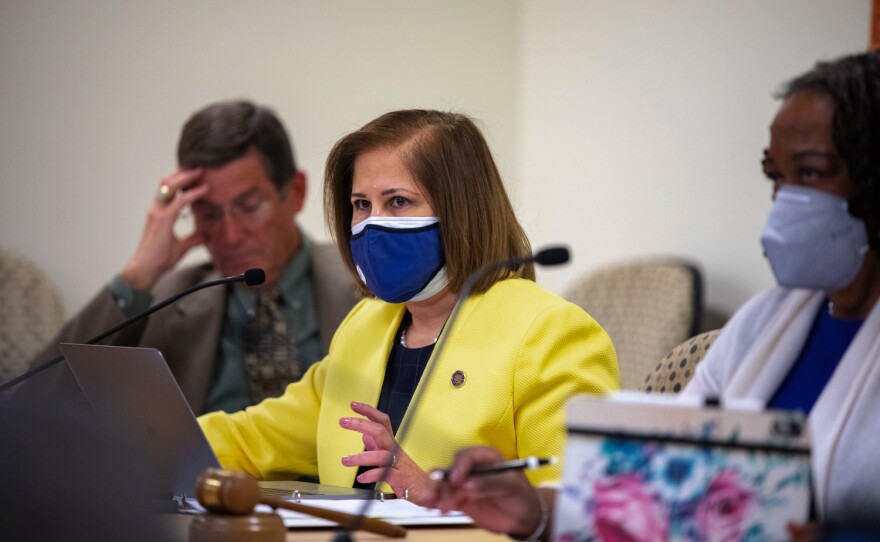State Sen. Ghazala Hashmi (D-Richmond) plans to reintroduce legislation during the upcoming General Assembly session to prohibit public colleges and universities from withholding student transcripts in certain situations.
Those situations include: if a student needs their transcript to apply to another higher education institution or for employment, to seek financial aid, or to look for opportunities to serve in the armed forces.
“What's really been heart-wrenching is to hear the stories of students who have employment opportunities or who have been accepted into other institutions, but they have not been able to get their transcripts in order to move forward,” Hashmi said.
Currently, every public university in Virginia prevents students who owe the school money from accessing their transcripts, though each sets it own rules regarding minimum balances for holds.
For a series called Dreams Deferred, several students impacted by transcript withholding told VPM News that not having their transcript prevented them from moving forward with their education.
Hashmi has revised her legislation from last session, which initially proposed prohibiting transcript withholding altogether.
In addition to limiting the circumstances in which schools would have to release transcripts to students, Hashmi said her legislation would allow — but not require — universities to request students enter into payment plans to settle existing debt in order to receive transcripts.
“We want them to fulfill their obligation to the institution, but we also can't be creating the walls or the barriers that actually prevent them from moving forward,” Hashmi said.
Hashmi’s legislation to prohibit transcript withholding altogether passed the Senate with some bipartisan support last year but failed to clear the House. There, Del. Betsy Carr (D-Richmond) introduced budget language to require a study on the issue, which was recently published.
“Definitely something needs to be done,” Carr told VPM News. She also said she’ll likely introduce further budget language to address the issue this session.
According to the study, conducted by the State Council of Higher Education for Virginia, "institutions use an immediate hold on a transcript as a method to encourage a conversation between the institution and the student to attempt to resolve the debt.”
But, the report says the practice can harm students: “There is concern that the withholding of transcripts could harm a student’s ability to enroll in another institution to complete a degree or provide academic records to a potential employer. Either outcome could affect future earning and limit their ability to pay off the debt.”
The report includes new data and university-specific information, and summarizes what existing law has to say about the issue of student debt collection. Currently, the state is required to “aggressively collect” all debts — including all debts to public institutions of higher education.
This requirement limits the relief universities can offer to students. Some schools in other states have set up programs aimed at forgiving certain amounts of student debt in exchange for reenrollment at the institution, but SCHEV’s associate director for financial aid Lee Andes told VPM News it “would likely require a change in state law” if Virginia colleges wanted to do something similar.
Hashmi and Carr said the law requiring aggressive collection needs to be reexamined. Hashmi said she doesn’t think that this Code of Virginia section was first devised with knowledge of the serious implications for Virginia citizens and students, adding “we may have the opportunity to revisit that language and loosen the obligation that it puts on our institutions.”
While the new state report on student debt collection practices points out that many states have similar language about aggressive debt collection strategies, “there is a growing trend towards revisiting these policies.” It notes eight states have already prohibited transcript withholding in some circumstances, and five more states have legislation pending.
“By removing this action, students are still responsible for their debts but are able to transfer to another institution or verify education for potential employers,” the report states. “Debtors would be in a potentially better position to repay institutional debts if they can continue and complete their education.”
Last year, VPM News published a multi-part series called Dreams Deferred about direct-to-school debt, its implications for students, and the policies at play. Click here to read it from the beginning.



